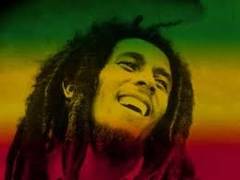Marley, Reggae and Passover
04/17/2019 03:24:35 PM
 With Passover just a few days away, I am thinking about Bob Marley. I fell in love with Bob Marley’s music before I fell in love with Judaism. I was a freshman in college at the University of Vermont, a long way from my home in Louisville, Kentucky and even farther from Kingston, Jamaica but my roommate was “in the know”, and I was a willing initiate. The posters came first: leaves of cannabis in the red, gold, and green colors of Jamaica; a “joint” (don’t worry, I didn’t inhale); and then the music, the Marley classic “Exodus”: “Exodus, movement of Jah people, Exodus, movement of Jah people…”
With Passover just a few days away, I am thinking about Bob Marley. I fell in love with Bob Marley’s music before I fell in love with Judaism. I was a freshman in college at the University of Vermont, a long way from my home in Louisville, Kentucky and even farther from Kingston, Jamaica but my roommate was “in the know”, and I was a willing initiate. The posters came first: leaves of cannabis in the red, gold, and green colors of Jamaica; a “joint” (don’t worry, I didn’t inhale); and then the music, the Marley classic “Exodus”: “Exodus, movement of Jah people, Exodus, movement of Jah people…”
At first Bob Marley’s prophetic message was lost on me; it was all about the beat, the altered consciousness and Marley’s soulful voice. Years pass. I graduate from college, go to work, and miraculously find my way into Jewish life. I learn, among other things, that the story of the Exodus is the Master story of the Jewish people, the foundation for our most basic values and the paradigm for revolution in the West. Martin Luther used the Exodus story to argue for the Reformation. Dr. Martin King Junior preached from the same narrative to demand equal rights for Black Americans and the founding fathers of our country wanted the seal of the nation to feature Moses, his staff raised high, the sea split asunder with the words, “rebellion against tyranny is God’s law”. No wonder Bob Marley, channeling the yearnings of exiled Africans all over the world, sang the Exodus song. Its universal message of hope; that a slave nation could be free and that God would hear the cry of the oppressed, spoke directly to his experience in Jamaica.
And then, the strangest thing started to happen; everywhere I went, Bob Marley’s music followed me. I’d been waiting for a cup of coffee at Starbucks and over the stereo would come… “Get up stand up, stand up for your rights…” Or riding in a taxi to the airport… “One love, one heart, let’s get together and feel alright…Give thanks and praise to the Lord and we’ll feel alright…” Bob followed me all the way to Alaska! I was on a break from working a summer job as a rabbinic intern when I got a flat tire (actually two!) while driving along the Denali Highway. Miles away from anything remotely resembling a town or a gas station, I was forlorn and a little frightened when, out of nowhere, a tow truck drives by. I wave him down and you’ll never guess what was playing on his radio… “Exodus, movement of Jah people, Oh yeh!

I’m a pretty rational guy but I began to think that there was a deeper message for me in Marley’s music so I started to dig into his lyrics and the larger cultural well he drew from. What I found was a nexus between Judaism, reggae and the Rastafari religion many reggae musicians follow. For example, Rastafarians observe a Biblical form of kashrut, abstaining from pork and other forbidden foods. They also consider the Bible to be their core text, elevating central passages like the Ten Commandments and quoting verses from the Bible in their music. The Rastafarian-infused reggae culture has also incorporated various Jewish symbols like the Star of David and the Lion of Judah. Central to the religious and cultural bridge is of course, the Exodus narrative, which they read as a metaphor for their own saga of exile and yearning for redemption. The geography is different; their Zion is Africa and ours Israel, but the story equally resonates.
And, while I focused on Bob Marley whom I believe was a third world prophet, there are many reggae artists young and old whom draw on Biblical themes that ring true to any knowing ear in either culture. A few examples: Desmond Dekker, “The Israelites”; Jimmy Cliff, “By the Rivers of Babylon”; Alpha Blondie, “Jerusalem”, etc.
If you are like me you are probably wondering about the source of this cross cultural connection? No one knows for sure but we do have some strong clues from the history of the Caribbean’s interconnection to the U.S. and North American Black Judaism. Leonard Percival Howell, considered by many to be the father of Rastafarianism, was born in Jamaica in 1898, worked in Panama as did many Caribbean folks in his time, and then made his way to Harlem where he learned from Black Jews about their understanding of themselves as the ancient Israelites from the Bible. Howell was deported back to Jamaica in 1930, bringing with him these teachings and the roots of Rastafarianism. It’s also true that the first Europeans to settle in Jamaica were Jews fleeing the Spanish Inquisition, and it is not a far stretch to suggest that over time some of their culture and values influenced the Jamaican culture as well.
It’s been 38 years since I first fell in love with Bob Marely’s music. So much has changed yet his music and message still rings true, like the timeless message of the Exodus, which for centuries, has offered people courage and hope, inspiring them to “gird their loins”, and challenge the pharaohs of their own time. Why should we be any different?

